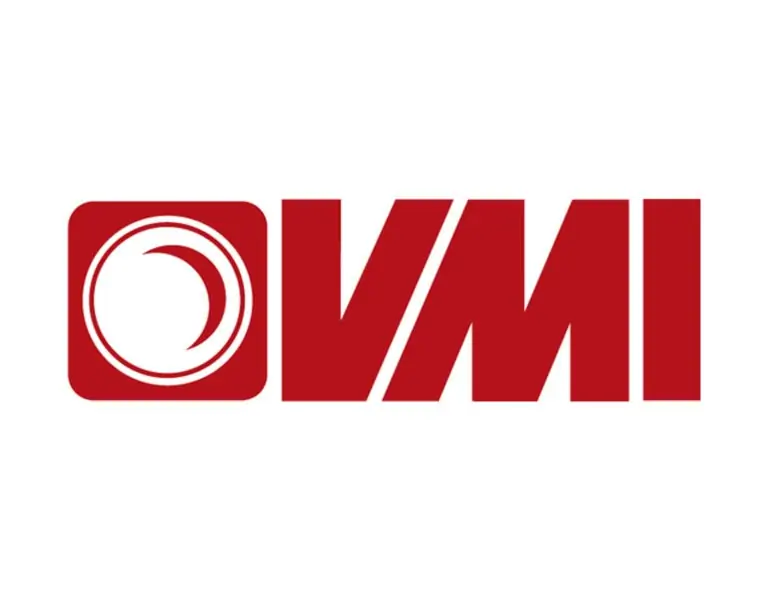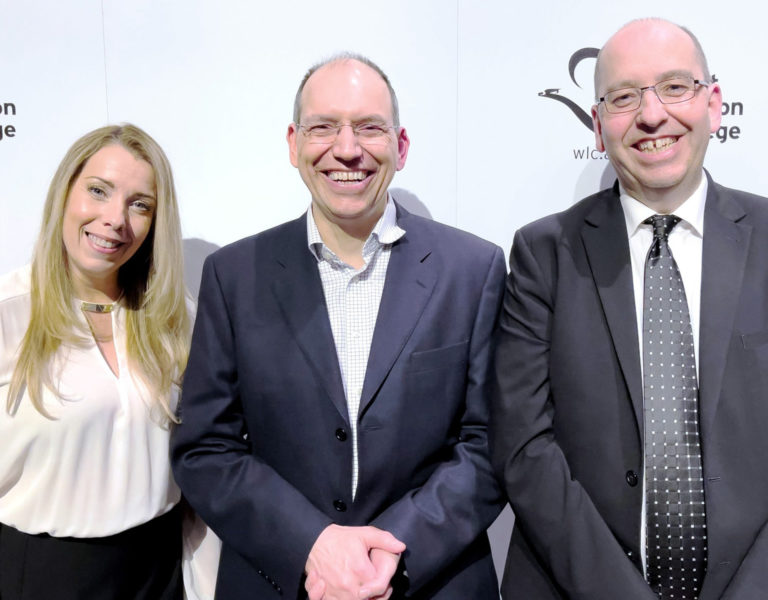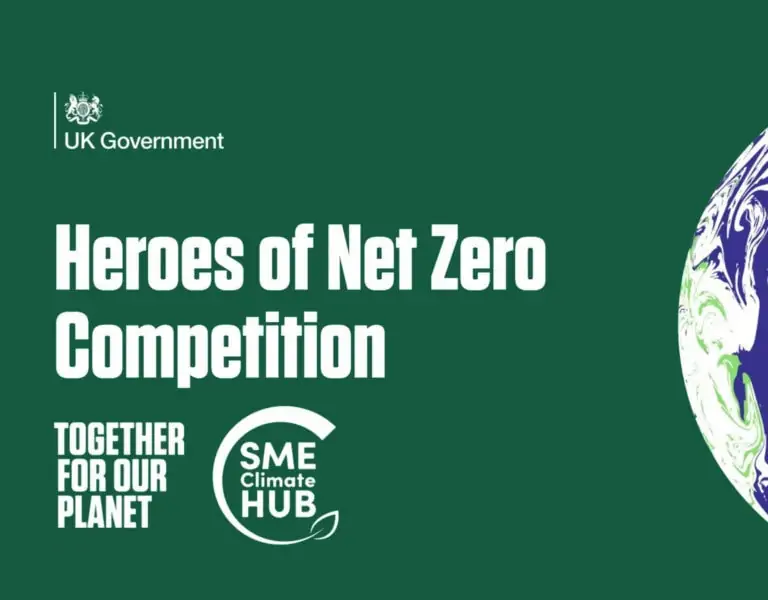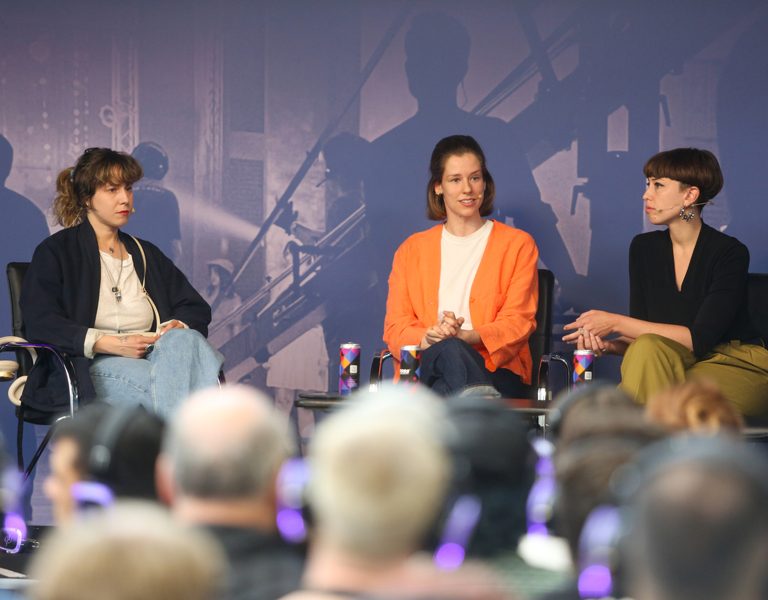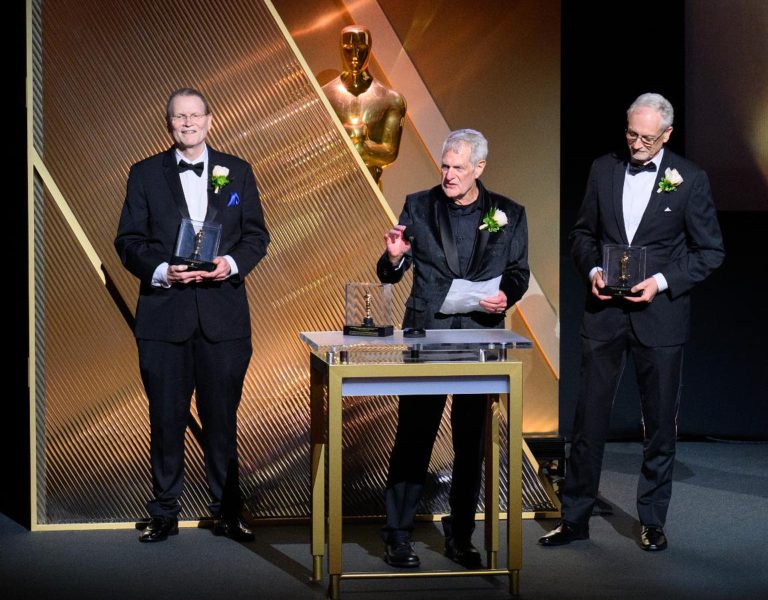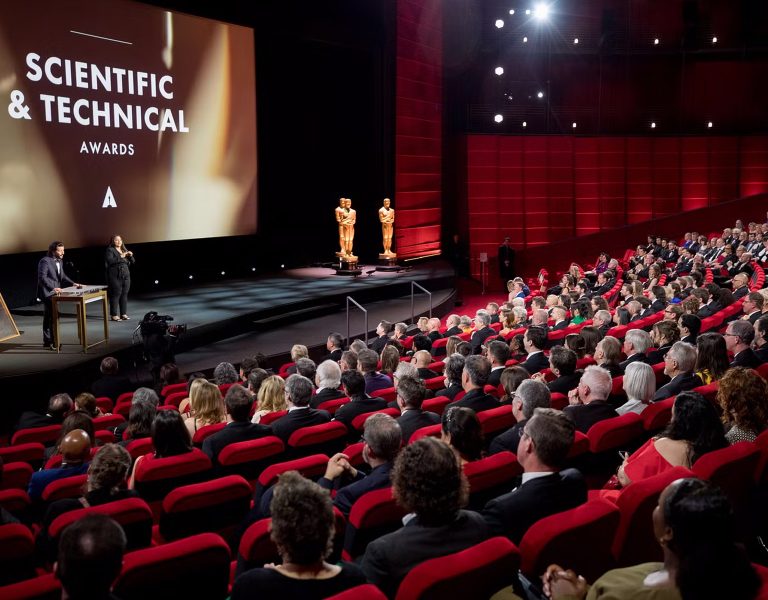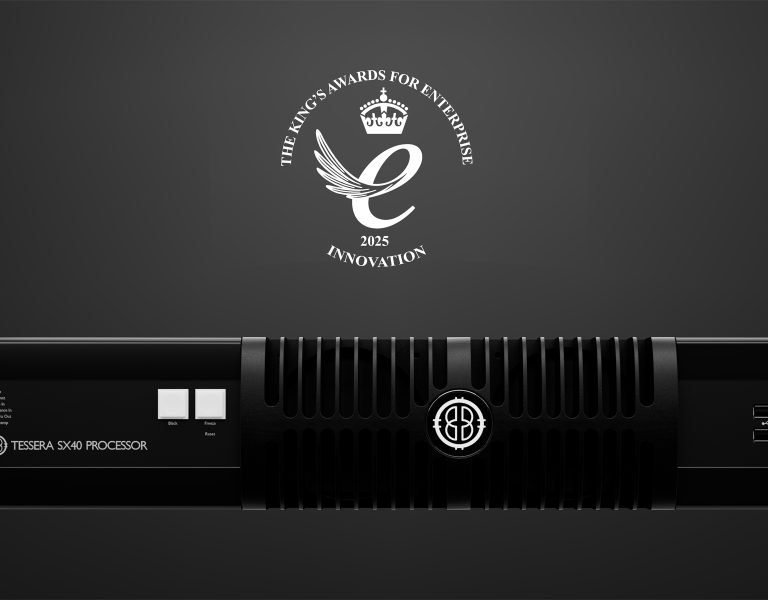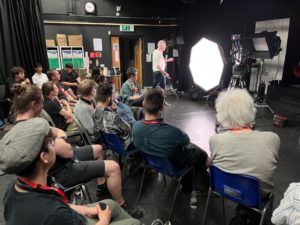
VMI’s new in-person workshops allow visitors to get hands on with equipment and to talk about it underlines the value of in-person events. The team had a good reception to May’s Lighting Workshop held at West London College’s Studio in Ealing.
The sold-out event was the first in a series that VMI is hosting to spread awareness of the creative and sustainability advantages of LED lighting technology and a central part of our award-winning role as an Ealing Business Pioneer.
Attended by industry professionals at crew and production executive level, the workshop began with a short introduction to different lighting technologies, progressing from tungsten lamps to Fresnel and HMI, onto LED and finishing with the latest LED COB (chip-on-a-board) fixtures.
While the first generation of LEDs only provided a binary choice of daylight or tungsten, and the second generation enabled switchable tungsten and daylight options, the latest advance of the technology – using RGBWW LED – enables lighting crafts to synthesise any colour without having to use gels.
It’s all very well reading the specs or even seeing a review on YouTube but when it comes to lighting choice, there really is nothing like seeing it and manipulating it yourself. That was what attendees could do, with visitors encouraged to compare and contrast the performance of fixtures side-by-side.
The results were as clear as daylight.
For example, some gels permit less than 1% of light through so you would traditionally need a fixture capable of generating a commensurate amount of brightness and power. But with RGBWW lighting you can create and control the same colour temps accurately at a fraction of the cost in power and heat from a fixture a fraction of the size – all with positive environmental impact.
Another example: if you need to simulate the midday sun through a window you would typically reach for a powerful lamp fitted with a large Fresnel lens. At VMI’s workshop visitors could see for themselves a demo of an ARRI M18 1.8K HMI side-by-side with the output of a Nanlux EVOKE1200 LED fixture. The LED impressively stood up to the test and yet draws far less power from a smaller, lighter footprint – and it’s cheaper.
“The feedback for our first in-person lighting event was extraordinary and so positive,” said Barry Bassett, VMI’s managing director. “Everyone was able to compare the very latest LED technology alongside conventional illuminations. It sounds strange but after COVID, being able to see with our own eyes rather than via a screen is just so important.”
The events are run by trainer Graham Reed, a highly experienced lighting director and camera operator, who worked at the BBC for 21 years before embarking on a long freelance career. He has delivered courses on Camera and Lighting Techniques and Production at Ravensbourne College, Bedfordshire University and Oxford Brookes University, as well as to several corporates.
Graham described the advantages of this new technology as this:
“HMIs are about 4 times more efficient then tungsten lamps. An HMI 575w gives about the same light output as a 2kw tungsten. Tungsten bulbs are only about 20% efficient. Colour-correcting a tungsten light, with full CTB, will reduce the light output by about 1½ stops.
Using LED light fixtures which are much more efficient than either HMI’s or tungsten light sources and they are much easier to use and generate far less wasteful energy.
For example, an Arri 1.2 HMI will produce approximately 3000 lux at 6m whereas a Nanlux 1.2 will produce approximately 4000 lux and little heat, plus you can use it in the rain! But in the real world situation it is all about light control. Nanlux1.2 is dimmable from 0 to 100% so much easier than using ND!
Coming to the VMI lighting workshops will give you a real hands-on experience of using the latest lighting fixtures.” Graham Reed, Lighting Director and presenter of VMI Lighting Workshops
Graham is passionate about maintaining standards in the TV production industry and helped to found the Institute of Training in TV Production for which he sits as chair.
Bassett added: “Best of all – they’re free of charge! Having won the grant as an Ealing Business Pioneer we wanted to follow through and help the industry to recognise just how far lighting tech has improved and that making the choice to use it not only cuts production costs it can help make a positive impact on the environment without compromising the craft. The best way by far of encouraging people to change attitudes and habits is to see it in person.”
The initiative has also caught the eye of commissioning powerhouses like Netflix which has made sustainability goals a strategic priority.
Events like the VMI workshops will help producers, broadcasters and streamers in the UK’s film and TV industry to achieve their goal of using more efficient low carbon production techniques.
The events will be running monthly for the next 18 months. The next VMI LED & Low Energy Lighting workshop is on June 16. For more information visit: https://vmi.tv/event/led-low-energy-lighting-w-shop-pm/
